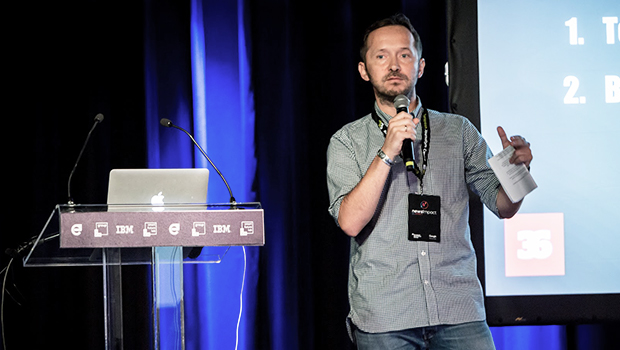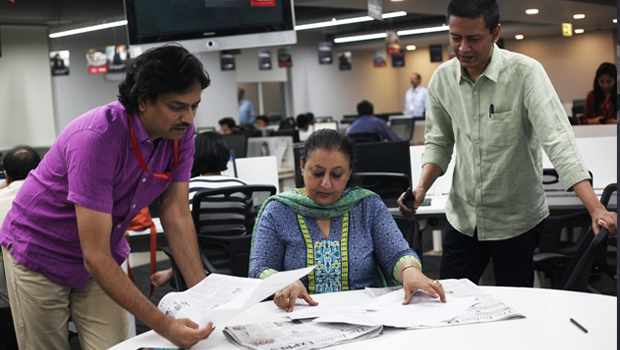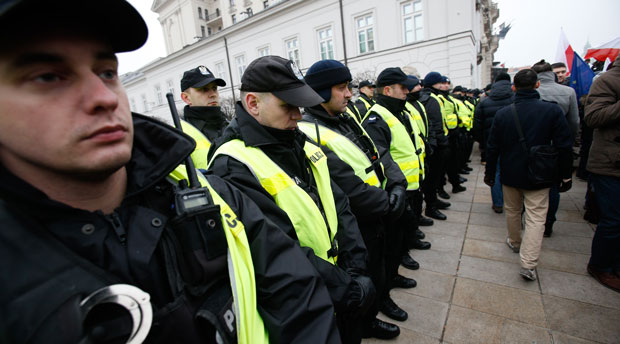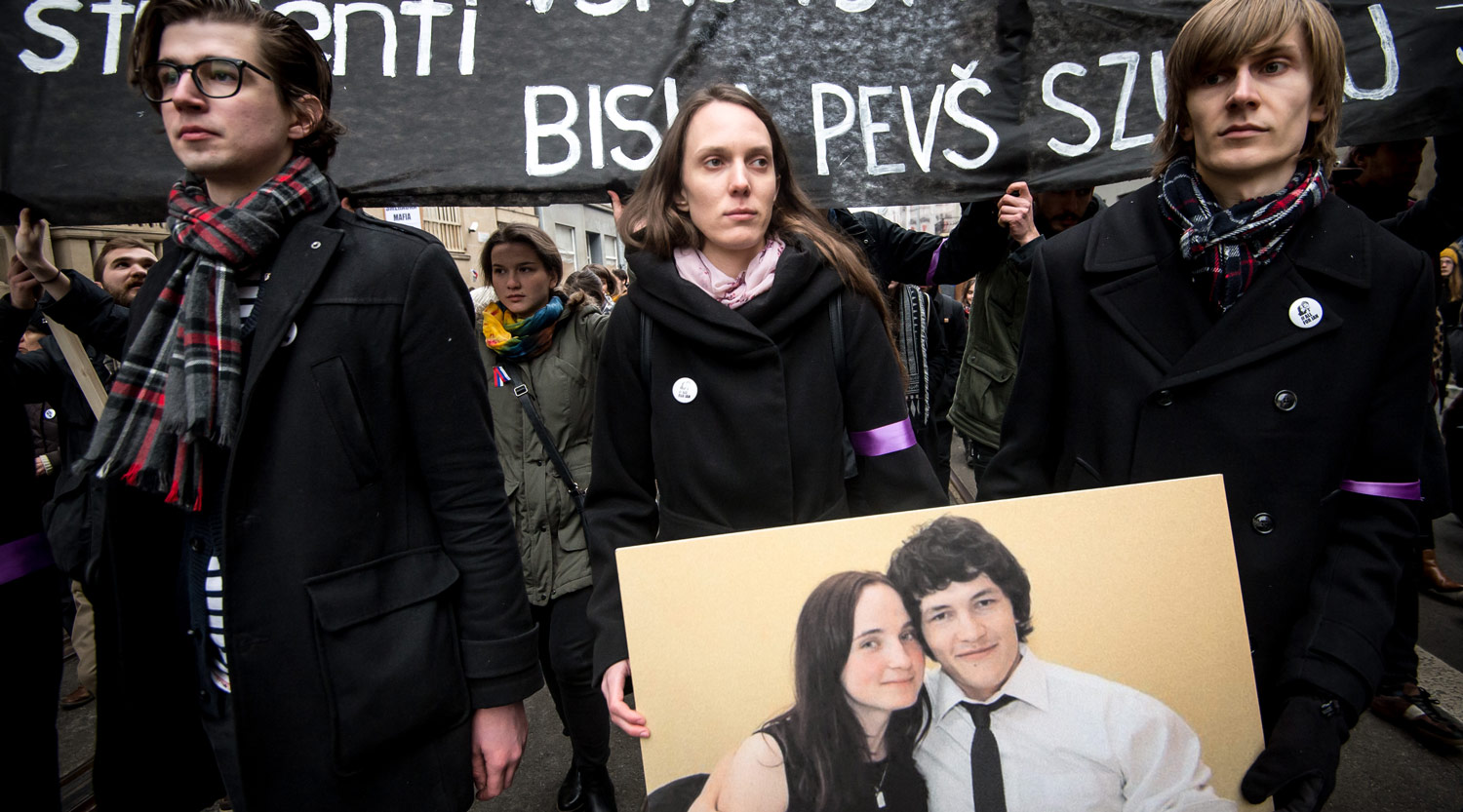ICIJ has hundreds of members across the world. Typically, these journalists are the best in the country and have won many national and global awards. Our monthly series, Meet the Investigators, highlights the work of these tireless journalists.
This month, we speak with award-winning Hungarian reporter Andras Petho who founded Direkt36. He became an ICIJ member in 2014 and has worked on ICIJ’s Luxembourg Leaks, Panama Papers and Paradise Papers investigations. You can follow him on Twitter here.
How is the situation for journalists in Hungary?
In Hungary, it’s becoming more and more difficult to do independent journalism as the government and its allies are increasing their control over the media landscape. They have built a powerful propaganda machine while they are treating independent journalists as enemies.
If you are not a friend of the government (and you don’t need to be a critic), you can easily be labelled a foreign agent. As bad as the situation is, there are still many good journalists working in Hungary. We at Direkt36 are also determined to keep doing the kind of fair but hard-hitting investigative reporting we believe in.
One of the assumptions about investigative journalists is that they like confrontation. But in my case it’s not true.
Apart from the attacks from the government’s propaganda machine we’ve been also receiving legal threats, but I guess it’s pretty normal everywhere. Fortunately, physical threats are not common in Hungary. That’s why we were all deeply shocked when we heard about the death of Ján Kuciak, the Slovakian investigative journalist. It happened too close to us. I hope we will not see anything like that happening in Hungary, but in general I’m worried that the Hungarian media industry may go in the same direction as in Ukraine, Russia, or the Balkan region.
Before we started Direkt36, I had worked for Origo, a popular news website. It was a good place to do journalism for a long time. But, as the government stepped up its efforts to take the media under its control, we also came under pressure. The management of Origo’s publishing company, which was then owned by a big telecommunications corporation, became less supportive of our reporting, and they even pressured us to drop certain stories that were uncomfortable for the government.
What was your most challenging situation as a journalist?
When we did not give in, they forced out Origo’s editor-in-chief. This happened on the very same day when I arrived at an International Consortium of Investigative Journalists meeting in Brussels on Lux Leaks, my first project with the consortium. I remember it was quite hard for me to concentrate on the meeting as I was also following the turbulent situation back home. Then, when I returned to Budapest, I resigned from Origo, and soon with some of my colleagues we started discussing launching a new project. Direkt36 was born out of those discussions.
How are you funded?
We are a nonprofit organization with a mixed revenue model. We’ve received grants from international foundations, and we also have a growing community of supporting members. Since our launch in 2015, more than three thousand people have supported us through crowdfunding. The supporters get special insight into our work via newsletters, e-books and live events. In addition to all these, we also have some business revenue. We do research for other media organizations, and we are getting some income from our publishing partners (websites and magazines that run our stories) as well.
What is your tip for young aspiring journalists?
My advice would be for non-English speakers: learn to read and speak English. That was what greatly advanced me in my career. I was reading lots of stories in the U.S. and British newspapers and tried to understand how the journalists did the reporting and how they put their stories together. Those stories educated and inspired me. Spending time abroad and learning how other, more developed, media environments work is also very helpful. I was lucky enough to work for the BBC World Service as a radio producer and later spent time at the investigative unit of The Washington Post as a visiting reporter. Needless to say, I learned a lot in both places.
Why do you love journalism?
Because it’s one of the most exciting jobs available! You start with just a piece of information, then you investigate, dig in further until you have a complete story – and you’ll be the first person to tell it to the public. This is a very rewarding and fascinating process. Also, it’s intellectually exciting to unravel complex matters and topics and break them down so the audience can understand them.
Do you have a tip on how to gather information?
I love data, but I think I like people even more. So, I try to spend as much time as I can with sources or potential sources. I often organize lunch meetings. It’s a good way to catch up with people. My experience is that you often pick up the best pieces of information during casual conversations.
Is there anything about the job you do not like?
Well, one of the assumptions about investigative journalists is that they like confrontation. But in my case it’s not true. I always feel a little uncomfortable when I approach the subjects of our investigations. After all, you’re about to publish something that will hurt their interests. So, these are not very nice encounters, though sometimes they can lead to funny moments.
Something like this happened in the Panama Papers project when I approached a major politician whose wife (who works as teacher in a public school in a poor town) appeared in the leaks as the owner of an offshore company with a Swiss bank account. I started the conversation with a vague question on what he knows about his wife’s foreign business activity. First he asked back, “Does she have such a thing?” Then he claimed he didn’t know about any foreign company owned by his wife. When I told him that I found a company in Samoa on her wife’s name he simply said “then she must have such a company.”
What do you enjoy most about your job?
I love the field work. Last year a colleague and I followed the leads to a story about the Hungarian Prime Minister Viktor Orbán’s family and how they got involved in state-funded construction projects. We launched our investigation based on tips, and we used the whole toolbox of investigative journalism to find hard evidence. We developed confidential sources in the construction industry, built databases about public projects, filed freedom of information requests, mined documents and did extensive field work, including tailing trucks that carried products from the Orbán companies’ sites. That’s what I enjoy most: Leaving the city, going to places, speaking to people on the ground and observing what happens there.
Read more from our Meet the Investigators series:



